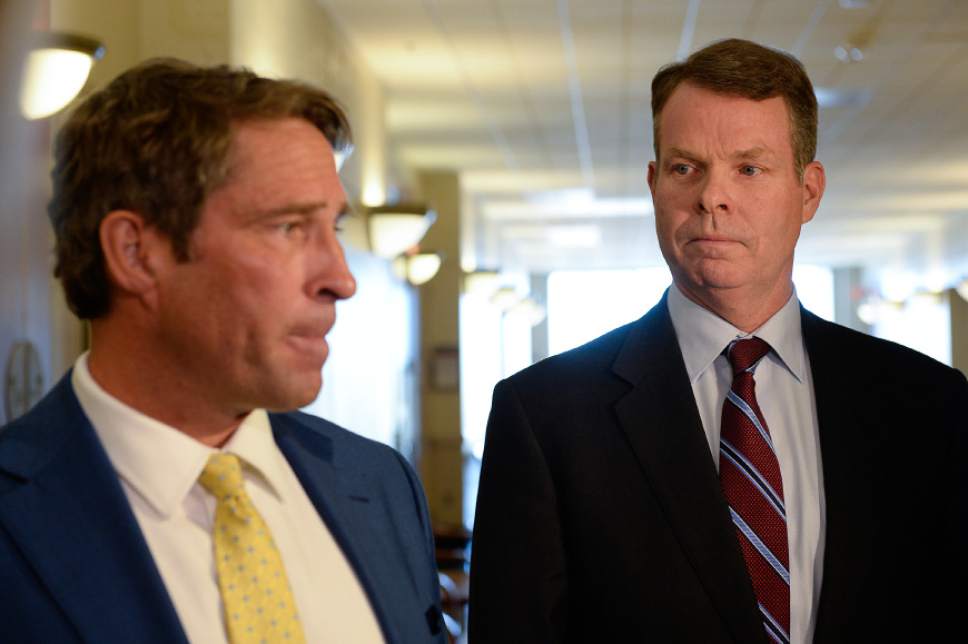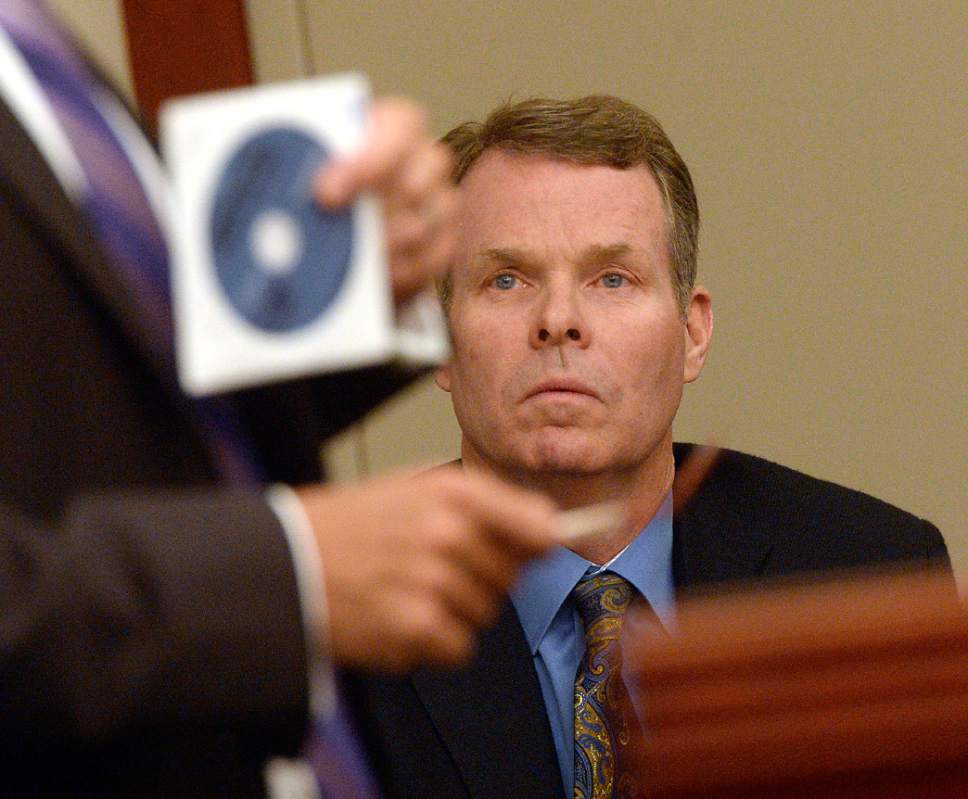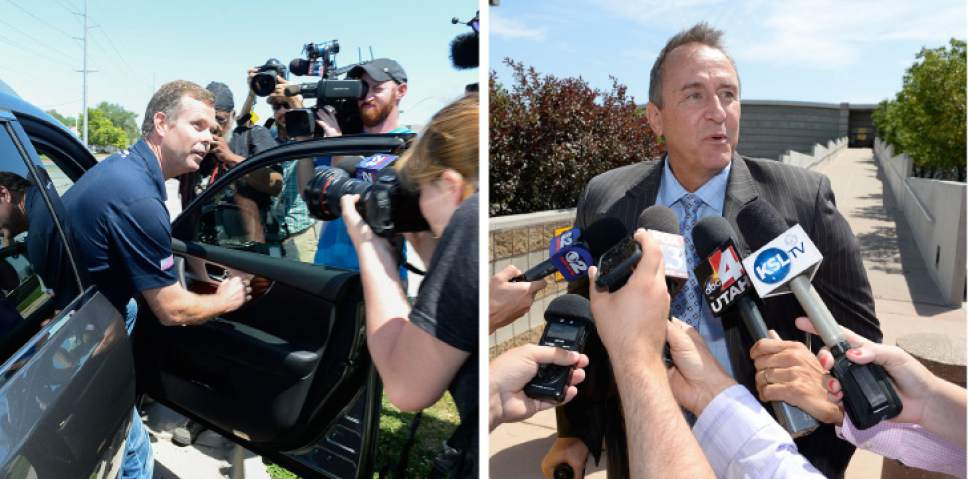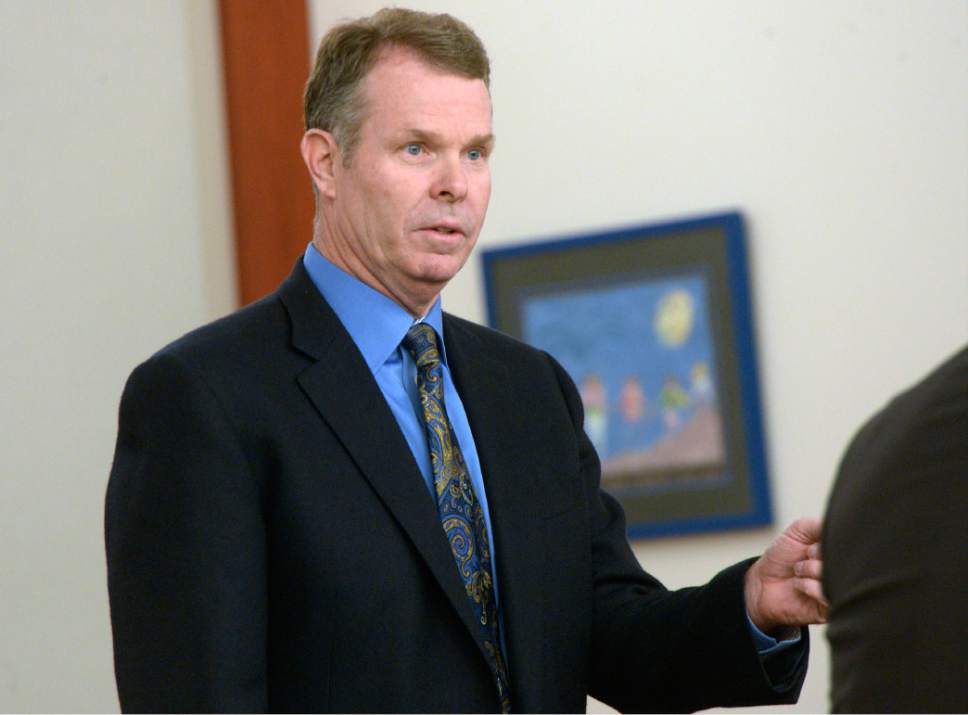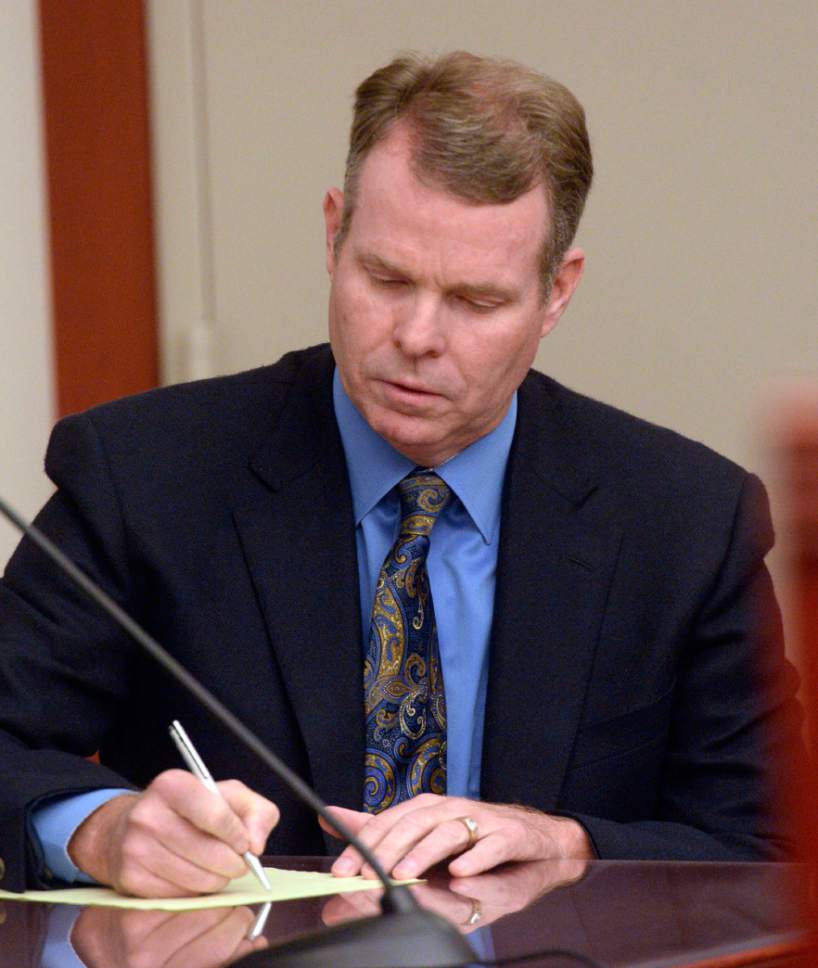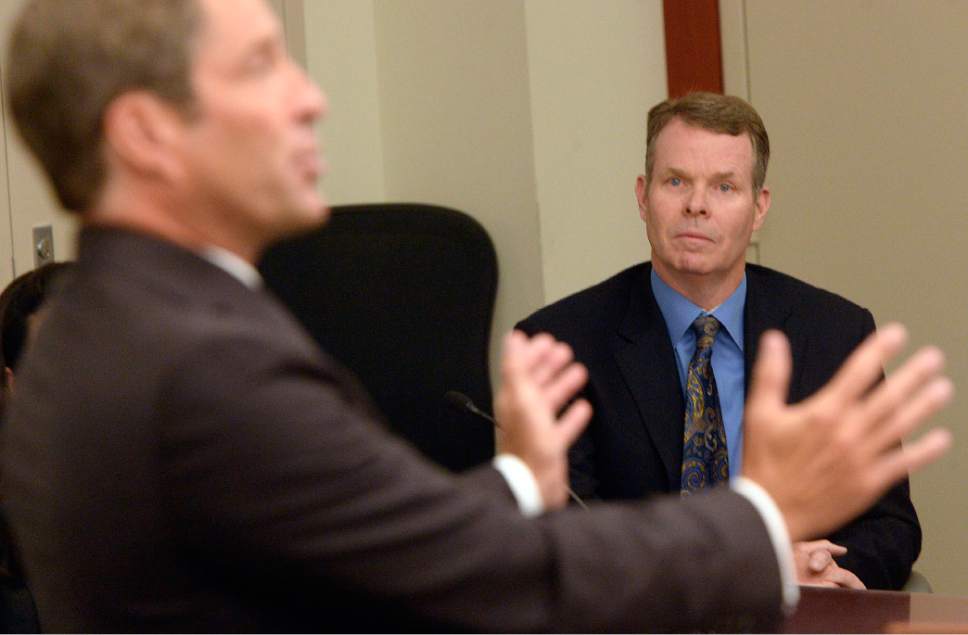This is an archived article that was published on sltrib.com in 2016, and information in the article may be outdated. It is provided only for personal research purposes and may not be reprinted.
State prosecutors say it's too soon for John Swallow to ask Utah's appellate judges to decide whether the former attorney general's constitutional rights were violated when prosecutors and investigators seized his protected email communications with a defense lawyer.
Instead, the 2-year-old public corruption criminal case should first reach its resolution through the trial set for February 2017.
"Granting review now will protract — not shorten — this litigation," the Utah solicitor general says in documents newly filed with the Utah Court of Appeals.
Swallow, who was Utah's attorney general for less than a year, is charged with 14 felony and misdemeanor crimes stemming from allegations of corruption and bribery inside the office.
In a 2014 raid of his home, investigators seized his computers and other e-devices containing more than 12,000 emails, some of them protected communications between Swallow and his then-attorney Rodney Snow.
His current defense team discovered the emails had been commingled with other evidence during keyword searches earlier this year and sought a dismissal of the case, asserting Swallow's constitutional right to counsel and a fair trial had been breached.
Third District Judge Elizabeth Hruby-Mills disagreed, siding with Salt Lake County prosecutors who said the intrusion was not intentional and that the communications had not been read or used.
In August, Swallow asked the appeals courts to decide the issue. He wants the case sent directly to the Utah Supreme Court.
"To appeal at this stage is not good practice," the solicitor general, who represents Salt Lake County, argues in Tuesday's filing. "It short-circuits the best practice of letting a case reach a conclusion through trial."
State attorneys say in court papers that the court should deny the petition to hear Swallow's appeal. They also argue that the former GOP officeholder has failed to prove any real injury. That also is something, they argue, that could be best determined through a trial.
"This claim will benefit from a trial record," court papers say. "If defendant is convicted, this court will benefit from having a more complete record on which to determine prejudice — if any. And if the defendant is acquitted, there will be nothing to appeal."
It was not immediately clear how soon the appeals court might decide whether to hear the case, or pass it on to the state's highest court.
That the Utah Supreme Court should hear the case is the only point of agreement between Swallow and the state's attorneys because it is said to be the first-of-its kind in Utah.
As an alternative to an appeal, Swallow has also asked the court to order an evidentiary hearing so his lawyers can question prosecutors and investigators — a request also rejected by Hruby-Mills.
State attorneys also oppose an evidentiary hearing.
Swallow, they argue, has offered no evidence to contradict the claims of prosecutors, investigators and FBI agents who said the didn't read the emails, nor has he provided proof that the state has information that could only have been gleaned from the documents. A hearing, the state said, would amount to a "fishing expedition."
Swallow's attorneys contend they can't know with certainty what prosecutors and agents know until those individuals can be questioned under oath on the stand.
Again, state attorneys wrote, the existence of prejudice depends on a trial record and holding an evidentiary hearing would only further delay those proceedings.


